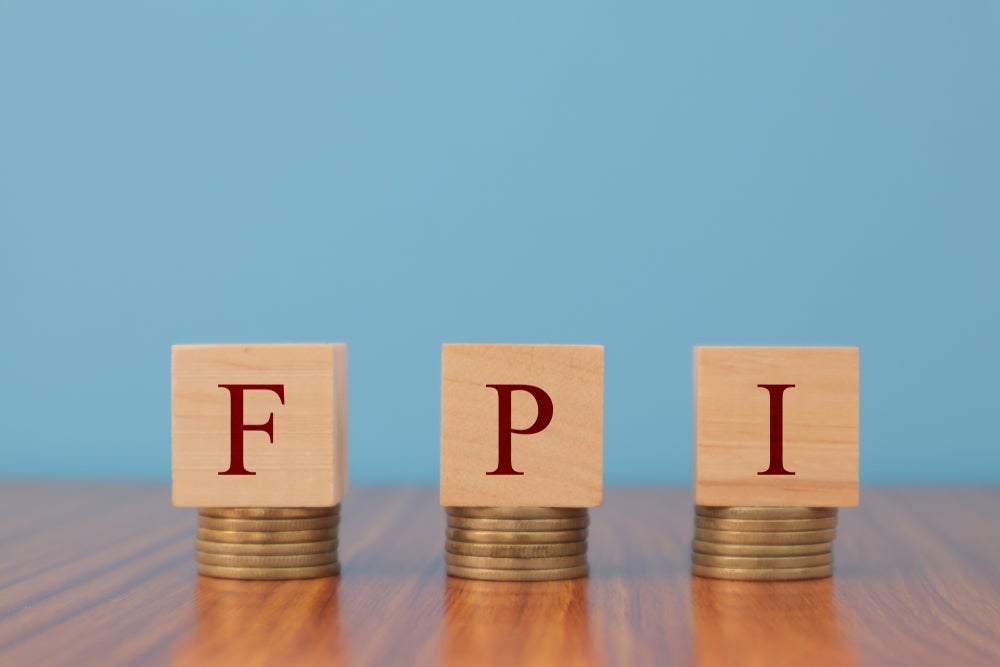
As the curtains fall on 2023, we find ourselves at the crossroads of economic evolution and innovation, bidding adieu to a year that has left an indelible mark on the global economic canvas. In this retrospective journey, we unravel the intricacies of a year defined by resilience, resurgence, and remarkable shifts. The macro-economic landscape of 2023, shaped by the ebb and flow of Foreign Direct Investment (FDI) and Foreign Portfolio Investment (FPI), stands as a testament to the intricate dance of capital across borders.
At AIM Congress, we dissect the year that was, exploring the dynamic shifts that will define the dawn of a new economic era in 2024.
FDI and FPI landscape
The OECD’s latest report paints a dynamic picture of global FDI flows in the first half of 2023. While there was a rebound to USD 727 billion, it remained 30% below levels recorded in the same period of 2022. Notably, much of the increase occurred in Q1, followed by a sharp 44% drop in Q2. The United States led the world as the primary FDI recipient, with Brazil, Canada, and Mexico closely following suit. FDI inflows to the OECD area increased to USD 275 billion, showing a positive turn in Q1 but dropping by 58% in Q2. A similar pattern emerged in outflows from the OECD area, more than doubling in Q1 but dropping by 56% in Q2. The interplay of FDI figures underscores the dynamic and formidable factors influencing the contours of global investment trends.
SMEs and the generative AI boom
In the realm of Small and Medium-sized Enterprises (SMEs), the CRISIL report predicts a resurgence, with overall SME revenue expected to reach 1.36 times the pre-pandemic level by fiscal 2024. The challenge lies in identifying sectors and clusters with fast-paced recovery post-pandemic.
Meanwhile, PitchBook data reveals a staggering 16% increase in median pre-money valuations for early-stage rounds of generative AI companies in Q1 2023, signaling an unprecedented era for AI-driven SMEs amidst a broader landscape of AI facing a 24% drop.
Shaping future cities
The future is urban, intelligent, and sustainable. As the global smart buildings market hurtles toward a projected $150.6 billion by 2030, the profound evolution toward next-level infrastructure becomes undeniable.
The Middle East and North Africa (MENA) region exemplifies this shift, with projects like the NEOM futuristic city in Saudi Arabia and Qatar’s Lusail entertainment city. With plans to invest $2 trillion in construction projects by 2035, the region stands at a crossroads, with the opportunity to pioneer sustainable technologies and techniques for the built environment, using AI, Internet of Things, and Power over Ethernet.
Startup insights
In the startup sphere, ByteDance leads as the startup with the highest valuation globally, according to Statista. A global perspective reveals that 61% of startups offer B2B solutions, showcasing the dominance of business-centric solutions in the entrepreneurial landscape.
As of September 2023, PWC UK reported the global number of unicorns to be 1,385, out of which the United States (653) and China (169) boast the highest number of unicorns worldwide, but the Latin American region emerges as one of the most active for startups, highlighting the global diversity in startup ecosystems.
Navigating the digital economy
In the rapidly evolving digital realm, the UAE takes the spotlight with its national digital economy set to grow by USD 140 billion by 2031. As the world becomes increasingly interconnected, the status of the digital economy becomes not just a measure of technological advancement but a key driver of economic growth and competitiveness.
Future outlook: insights and predictions
In 2023, economic foresight suggests a potential slowdown in GDP growth, urging investors to prioritize flexibility and adaptability. The year, marked by resilience and challenges, prompts strategic foresight in navigating uncertain economic seas. Looking ahead, insights from global investments, SME growth, and smart city initiatives offer glimpses into the evolving business landscape. Startups, exemplified by ByteDance, underscore the impact of innovative ideas.
The future holds promise for smart, sustainable, and interconnected business practices. Shifting to global climate action, COP 28’s focus on energy transition, climate finance, and inclusivity signifies a crucial step towards addressing climate challenges. Additionally, the growing importance of AI and the mainstreaming of sustainability in 2024-mark transformative trends shaping the future business environment.
AIM Congress and its role in boosting economy
The AIM Congress 2024 stands out as a beacon for global economic prosperity, distinguished by its innovative features. With seven different tracks, including initiatives like SHEpreneurs and a dedicated Digital Economy pillar, this edition introduces a unique ‘Reverse Pitch’ in Startups, offering a platform for entrepreneurs to present ideas to potential investors. Alongside, AIM Congress 2024 hosts insightful side events, explores diverse investment destinations, and features a specialized Regional Focus Forum. More than just a meeting, it’s a convergence of ideas, strategies, and opportunities, shaping the future of global investments.
Supported by the UAE Ministry of Industry and Advanced Technology and partnered with the Abu Dhabi Department of Economic Development, AIM Congress 2024 invites stakeholders from around the world to participate in this unparalleled convergence of global leaders and visionaries, taking place in Abu Dhabi from May 7 to 9, 2024. The event promises to catalyze economic growth and expansion, offering a unique opportunity to foster collaboration and address global challenges to benefit nations worldwide.
Download the 3-day agenda of the AIM Congress: http://tinyurl.com/ywm75s2u
Register now: https://aimcongress.com/delegate-register#delegate-registration

